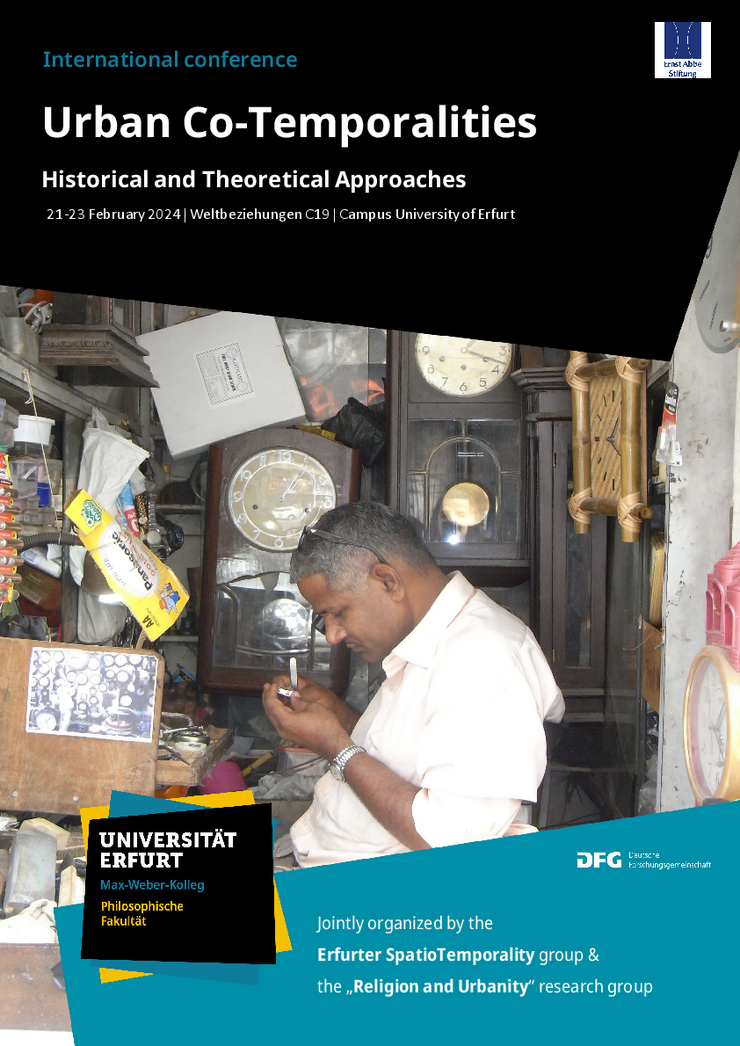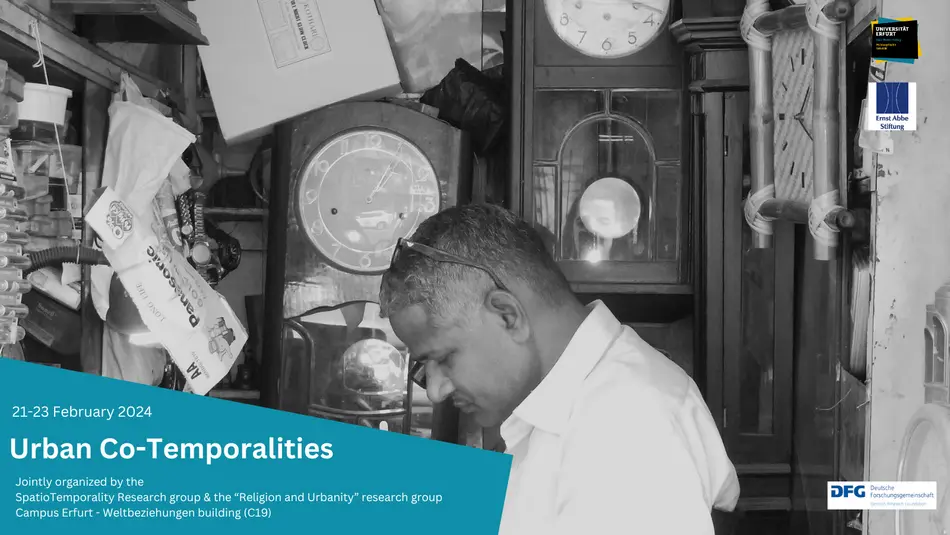Urban Co-Temporalities: Historical and Theoretical Approaches
Call for Papers

This conference focuses on multiple temporalities within an urban environment that appear to coexist. It investigates the question of co-temporalities in the urban setting and asks whether such a concept could prove useful for analyzing the connectivity between co-extensive spaces. In 2003, a related concept, co-spatiality, was introduced by the French geographer Jacques Lévy to describe space in terms of multiple layers. Lévy outlined a specific relation between spaces and the idea of interspatiality, a space of overlapping realities. Since then co-spatiality has received significant attention within the fields of social geography, spatial sociology, and the history of urbanized spaces. For example, two years ago the “Religion and Urbanity” research group at the Max-Weber-Kolleg organized a conference on the theme of co-spatiality to analyze how religious practices and co-spatiality interact with each other in the context of urbanity.
Within these same fields, a notion of co-temporalities has not yet been sufficiently theorized. The present conference aims to fill this gap by developing the idea of multiple strata or layers of temporalities co-existing, and contesting, within urbanized spaces. Co-temporalities are located; they must take place. The goal is therefore to seek an understanding of co-temporalities of pasts, presents and futures coexisting in a single urbanized space, and how different accounts of time and history occupy the same space. Enquiry into both aspects can be expanded to other cultural practices, for example, literature, music, performances, socioeconomical aspects (fairs, agriculture, etc.), ritual practices of different religious groups, and knowledge production more generally. The conference is therefore organized as a collaboration between the group SpatioTemporality Research Erfurt / Erfurter RaumZeit and the Humanities Centre for Advanced Studies/Kollegforschungsgruppe “Religion and Urbanity” (DFG, FOR 2779).
Based on the research program of these groups, we are interested in the following questions: How do different temporal discrepancies connect and disconnect? How can urbanity be understood in terms of temporal rhythms, as proposed in the urban rhythmanalysis of Henri Lefebvre and Catherine Régulier (2009)? Can the urban setting be considered a space of diverse temporal practices that overlap? What roles do the urbanized space and urban actors play? Finally, how and why does the urbanized space generate specific semiotic systems and meanings in relation to time? Especially in relation to the last questions, the subject of spatiotemporally becomes important, as co-temporalities must encompass both space and time.
These questions must be approached from an interdisciplinary perspective. We therefore invite proposals from diverse fields, including religious studies, history, sociology, urban studies, philosophy, gender studies, and postcolonial studies. The conference is an attempt to determine what can be obtained through incorporating a concept of co-temporalities into historical analyses and contemporary case studies, and how such research can assist scholars in better understanding the intersection of temporality, religion, and urbanity. Contributions from all epochs/regions are welcome, with a special focus on the Mediterranean, Europe and South Asia.
Potential topics/panels to be considered include:
Co-rituality and co-temporality
Focus on the performance of different rituals within the same urbanized space. For example, two different religious groups may organize a ritual event in the same location not long after each other. In this case, how does time, space, and performance overlap and either harmonize or differentiate (or both)?
Competing (hi)stories
Focus on multiple historical accounts and narratives that lay claim to the interpretation of the same history of an urbanized space. How do these competing accounts interact? For example, the modern city of Istanbul and its accounts of Eastern Roman, Ottoman, and secular/modern histories.
Urban rhythms of religion(s)
Focus on how time and timestamping cohere and overlap in the urban environment. How are rhythms of the urban established, for example, adhan and church bells in a modern pluralistic society? How are temporal practices regulated, modulated?
Co-temporality and co-spatiality
Focus on the interaction between overlapping spaces and temporalities in an urbanized space, for example, a place of worship or an historic site utilized by different religious groups with different connections to the history and space, perhaps with a different yearly calendar. What are the tensions that emerge, the negotiations, the compromises?
Abstracts of 4500 words should be sent by 31.3.2023, along with a current CV, to raumzeitforschung@uni-erfurt.de


